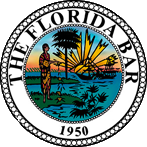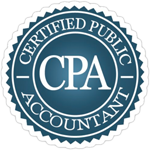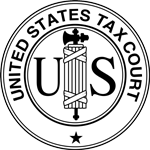- Free Consultation: (772) 418-0949 Tap Here to Call Us
How To Handle IRS CP14 Notices

When the IRS sends you a CP14 Notice in the mail, it is because you have a current IRS tax balance owed. This notice informs you of the amount owed, including tax, interest, and any applicable penalties, and demands payment.
The CP14 notice is a progression notice in the IRS collection scheme. This notice gets generated after a tax balance has already been assessed. Typically, the tax balance stems from a recent tax return filing. The IRS is now initiating its collection actions by sending you a payment reminder. If no response is made, the IRS will begin further escalated collection activities such as initiating tax liens, securing wage garnishments, making financial account levies, requesting passport revocation from US State Department, and obtaining property foreclosure judgments. Consider the CP14 Notice as an IRS kickoff point for future collection activities to commence.

The best way to avoid any IRS escalated collection activities is to respond to the CP14 Notice as soon as possible. Talking to a tax professional is a good idea to assess your situation and properly determine the best resolution action.
Why Does the IRS Send Out CP14 Notices?
The IRS mainly sends a CP14 Notice to inform you that an outstanding tax balance is due. Here are some of the typical reasons for this :
- Non-payment or Underpayment of tax balance: The IRS will generate CP14 Notice if you did not fully pay the balance owed a balance from your recent tax return.
- Lack of response to prior IRS notification: You may have a current tax balance resolution in place with the IRS, and they remind you of this. Or you have not responded to prior notices, and this is just a reminder notice of your tax balance due.
- Tax Return Mistakes or Discrepancies: If your tax return contains errors or discrepancies which result in taxes due, the IRS will issue a CP14 notice. However, in most cases, before the IRS issues the CP14, they will have sent you a notice of the changes made, followed by a notice of the respective tax assessment. The IRS must always assess a tax before any collections can be pursued.
The IRS usually does not begin to send out CP14 notices for a significant amount of time after a tax return has been filed, provided the tax balance is owed. If you have not paid your taxes, the IRS will eventually come around to you. This CP14 indicates that you are now on notice with the IRS, requiring immediate action, or elevated collection actions will soon commence.
What Is Listed Within an IRS CP14 Notice?
To respond appropriately, fully understanding what the CP14 Notice contains is essential. CP14 Notices include the following:
- The Individual Notice number: The IRS assigns a unique number for reference. When responding to IRS about the notice, you will want to reference it.
- Specific Tax Year(s)/Periods: – the time frame the notice covers.
- Balance Due: The notice provides a total amount along with a breakout of this amount for tax, interest, and penalties.
- Payment Options: The IRS will provide information on making payments and even mention potential payment options, such as setting up and installing a plan.
- Balance Due Date: There will be a date listed by which you must either pay the amount owed or take some action regarding addressing the balance due. Regardless of the notice type, dates are essential to adhere to avoid escalation or to be able to seek specific date-sensitive remedies.
By timely and diligently going through the notice, you will be able to determine the correctness of the information, properly assess your situation, allow enough time for professional tax help, and fully understand your options. In addition, timely responding to this notice enables you to halt the IRS from taking further collection activities. In contrast, not responding to this notice will only make the situation take a turn for the worse.
Can I Ignore a CP14 Notice?
The CP14 Notice has several purposes: to inform you of an IRS tax balance due and to provide information on how to pay it off. Getting an IRS CP14 Notice means you are now on the IRS radar, and your tax debt situation requires resolution. Ignoring it is not a viable option. You should take it seriously and address your tax debt promptly to avoid the potential consequences. No response to this notice will only trigger the future collection activities:
- Interest and Penalties: By not addressing the tax debt, interest and penalties will continue accumulating, which could significantly increase the tax debt balance.
- Property Liens: The IRS can place a lien against current and future ownership rights in a property, which could impair your ability to sell or leverage the property until the tax debt is satisfied.
- Wage garnishments: Your wages or earnings could be garnished.
- Bank Levies: Your accounts held in financial institutions could be levied.
- Passport revocation: Depending on your tax balance amount, the IRS may petition the State Department to revoke your US passport.
- Refund Denials: Future tax refunds will be withheld and applied toward the balance due.
- Property Foreclosures: IRS could seek a judgment to have your property foreclosed on.
It may be that the IRS has a mistake listed with the notice, which, had you taken timely action, could have resolved the issue in your favor. Taking proactive steps to resolve the issue can mitigate the negative impact on your finances and maintain good standing with the IRS.
How Do I Respond to an IRS CP14 Notice?
The first thing to do upon receipt of the CP14 Notice is take a step back and read it thoroughly to ensure you understand what’s in the notice, what actions are available to take, and when you must respond. You will then want to confirm the accuracy of the amounts listed within the notice. You want to ensure you understand any differences.
How Do I Contest an IRS CP14 Notification?
If often wise to have a tax attorney-CPA to provide strong guidance here. If you disagree with IRS CP14 Notification, depending upon your situation, you can contest several ways:
- Requesting an appeal or review of your information.
- Submitting an Offer in Compromise based on Doubt to Liability.
- Paying the taxes under protest and then applying for a refund.
- Filing for Innocent Spouse Relief.
What Should I Do if the IRS CP14 Notice Is Correct?
If the amount tax balance due is correct, the focus should then shift to which of these payment options would best fit your situation:
- Paying the balance in full
- Applying for a monthly installment payment program, of which there are several types.
- Seeking a Partial Pay Installment Program
- Establishing Currently Not Collectible Status
- Requesting an Offer in Compromise – Doubt to Collectability
Whether you are seeking to contest or affirm what’s listed within your CP14 Notice, time is always of the essence when responding. Late responses or lack of responses could be very costly. If you are unsure of how to respond or how to do so in the best way reflective of your situation, consult with a tax professional to properly guide you.
What Are the Best Ways to Avoid Getting an IRS CP14 Notice?
The best way to avoid getting CP14 Notices is by doing the following:
- Full pay your taxes or plan with IRS to pay them. There are several payment options for possible consideration. Ensuring working with the IRS is best practice if you need payment considerations.
- Make sure all income is completely reported on tax returns. This will prevent the IRS from assessing additional taxes, therefore not having to send you notices of increased taxes owed. They will still send a CP14 for the balance due if no arrangements have been made.
- Have good recording-keeping processes in place to ensure accuracy on your tax filings.
- Make sure to double-check items entered onto returns. Doing this will help avoid unnecessary discrepancies, which could lead to tax increases resulting in CP14 Notice issuance.
Does Getting an IRS CP14 Notice Mean I am Getting Audited?
The CP14 notice pertains to money you owe, whereas an audit notice is for verifying a position taken on your tax return.
The CP14 notice is a widespread notice issued to everyone who owes back taxes. Audits are not as prevalent since they only occur if you are chosen because of the IRS’s specific concerns with your filed tax return or if you have been randomly selected.
The CP14 notice pertains to money you owe, whereas an audit notice is for verifying a position taken on your tax return.
Take Immediate Action When You Receive an IRS CP14

Responding immediately, or at least by the date listed within the CP14 Notice, is the best way to avoid dealing with further enhanced IRS collection actions. The notice provides instructions on how to make the tax payment, set up an installment payment plan, or how to dispute the findings. Other options may also be considered, such as seeking penalty abatement.
Having an experienced and knowledgeable tax attorney-CPA to provide tailored guidance to your situation will ensure that your resolution path is correct. If you have received an IRS CP14 Notice, please get in touch with multi-licensed tax attorney-CPA-IRS Enrolled Agent Will Harmon of Harmon Tax Resolution, LLC, for a free consultation on how he may provide the best tax solution for your situation. Please call 772-418-0949 or complete the Online Inquiry Form. You don’t have to face this alone.
Get Trusted Professional Tax Help with IRS Tax Notifications – Make the Call
Additional helpful information:
- “What Should I Do If I Receive an IRS Notice?“
- “What to Do If You Receive an IRS Statutory Deficiency Notice“
- “What Are IRS Tax Resolution Services?“
- “When Should You Hire a Tax Lawyer?“












